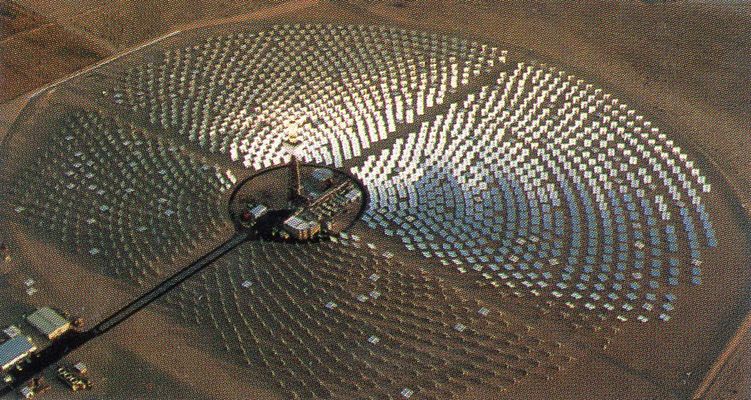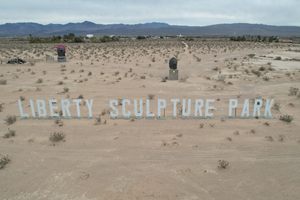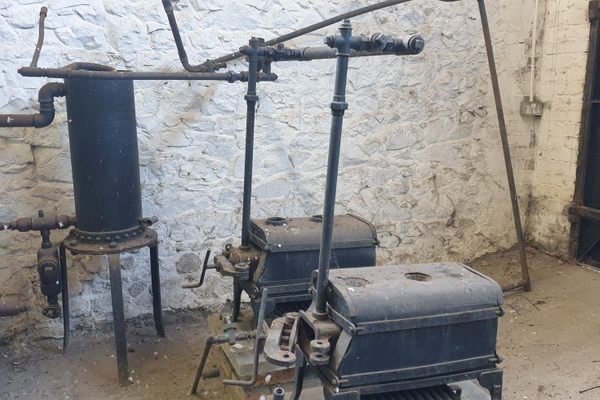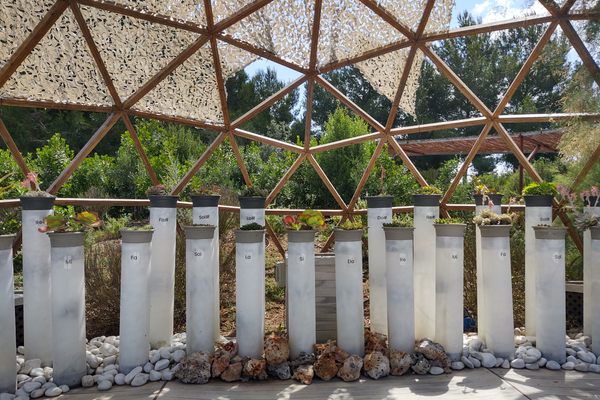About
Out in the Mojave Desert, the glint of the hundreds of reflectors at solar power plants are almost as common a sight as the Joshua trees. The first large scale solar project to utilize the open spaces and wealth of sunlight started in 1981 with Solar One.
Solar One generated power until 1988, creating steam with hundreds of heliostat reflectors directed at a central 100 meter tall tower. The system unfortunately had low efficiency in storing energy and stopped working when there were passing clouds or the fall of night.
A redesign of the solar project resulted in Solar Two, completed in 1995. While it used much of the equipment from Solar One, it had 2,000 heliostats and a better storage system, using molten nitrate salt to hold energy. It also had a tracking system so that the heliostats could follow the sun with their mirrors. Solar Two was in operation until 1999 and reached its peak producing 10 megawatts of power (enough for around 7,500 homes).
After Solar Two was decommissioned, it was used by the University of California, Davis, as a telescope to measure gamma rays hitting the atmosphere. The central tower of Solar One and Solar Two was torn down in 2009.
The two experimental demonstration projects pioneered solar technology that would later be used on a larger scale and marked the beginning of solar energy interest. More and more mirrors adorn the California desert, transforming the power of the sun into renewable energy. The heliostat field of Solar One and Solar Two can still be seen glinting on the sands.
Related Tags
Know Before You Go
Closed to the public, but visible from Santa Fe Road, going east of Daggett.
Published
September 15, 2016


























